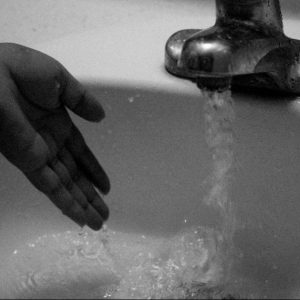The Stream, March 25, 2020: Coronavirus Aggravates Long-Standing Water Shortages in Flint, Michigan
The Global Rundown
The coronavirus complicates ongoing water issues in Flint, Michigan. Elevated levels of PFAS chemicals are detected in North Carolina fish. The coronavirus pandemic and the upcoming rainy season threaten to worsen suffering in embattled Yemen. Floods sweep through Iran, killing at least 11 people. The United Nations warns that improvements to water access are key for preventing the spread of the coronavirus in slums.
“The stores don’t have [bottled water]. We have people who called and promised to volunteer, but because of the pandemic every single one of them backed out.” –Sandra Jones, the executive director of R.L. Jones Community Outreach Center in Flint, Michigan, in reference to the impact of the coronavirus on water availability and distribution in the city. In the wake of the city’s 2014-2015 lead crisis, many Flint residents still rely on bottled water. Most grocery stores are currently running low on the product, however, and organizations that typically distribute bottled water are without volunteers. Detroit Free Press
Latest WaterNews from Circle of Blue
$1.5 Billion for Water-Bill Assistance Inserted in House Democrats’ Coronavirus Aid Package — The money would help Americans pay water bills during the crisis.
HotSpots H2O: Coronavirus Threat Rattles Water-Scarce Refugee Camps — As the coronavirus expands across the globe, millions of refugees living in crowded, ill-equipped camps are bracing for the arrival of the pandemic.
What’s Up With Water – March 23, 2020 — This week’s edition of What’s Up With Water includes coverage on hydropower dams along the Mekong River, fixing taps in Kolkata, India, and concerns about the impact of the coronavirus on Middle Eastern refugee camps.
By The Numbers
11+ People killed by flooding in Iran as heavy rainfall hits 10 provinces. The country’s first responders and hospitals are already overwhelmed with the fast-spreading coronavirus, which has killed nearly 2,000 Iranians. BNN Bloomberg
17 million Estimated number of Yemenis who lack access to clean water, according to a new Oxfam report. The aid agency warns that a new wave of fighting in Yemen, combined with the upcoming rainy season and the threat of Covid-19, could soon intensify death and displacement in the devastated nation. The report also notes that only 50 percent of Yemen’s health centers are functioning, and most of these face severe shortages of critical supplies. Relief Web
In context: Healthcare Facilities in Developing Countries a High Risk for Coronavirus Transmission.
Science, Studies, and Reports
A team of North Carolina researchers recently studied the impact of PFAS on fish in the state’s waterways, and detected elevated levels of the toxic chemicals in every fish tested, according to a study published in Environment International. The state’s striped bass now has the highest levels of PFAS documented among North American fish, compared with other studies from 2001 and 2015. Researchers say the proliferation of PFAS is likely hampering fish health and reproduction. National Geographic
On the Radar
The United Nations and other aid groups are rushing to provide running water and handwashing stations to residents of the world’s largest slums in order to fight the spread of the coronavirus. Social distancing and self-isolation are nearly impossible in crowded slums like Kibera, Kenya, making improving clean water access crucial in limiting the disease, aid agencies warn. UN News
Kayla Ritter is a recent graduate of Michigan State University, where she studied International Relations and Teaching English to Speakers of Other Languages. She is currently based in Manton, Michigan. Kayla enjoys running, writing, and traveling. Contact Kayla Ritter






Leave a Reply
Want to join the discussion?Feel free to contribute!